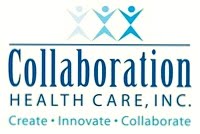The Institute of Medicine was created in 1970 as a subgroup of the National Academies and Sciences. The Institute is an “advisor to the nation” on the relevant policy and social issues of health and of the challenges facing our health care system and. It includes a lot of smart people from all areas of the health care system.
The Institute has already produced hundreds of studies and papers on a number of health care-related topics. Two of the most notable:
In 1999 the Institute produced “To Err is Human: Building a Safer Health System.” The research highlighted the number of deaths that are the result of medical errors in our health system.
In 2001 it released “
Crossing the Quality Chasm; A New Health System for the 21st Century.” This paper emphasized the need for health care to become more “patient centered” and encouraged an entire restructuring of the delivery system. It stated, “What is perhaps most disturbing is the absence of real progress toward restructuring the health care system to address both quality and cost concerns. . .”
It just release another; “
Best Care at Lower Cost; The Path to a Continuously Learning Health Care In America.” This study builds on the message it has tried to communicate to the general public for the past 13 years- the health care system is still in need of a fundamental restructuring in how it works and consumers need to be a fundamental part of the new system.
“Best Care at Lower Cost” estimates $750 billion was wasted in our health care system in 2009. Keep in mind Obama and Romney (regardless of what they say) are recommending to reduce Medicare payments (mainly through payment reductions to health plans, hospitals, home health) by $716 billion over ten years.
Eliminating the waste identified in the IOM report could reduce annual health expenditures by $750 billion in a single year or 30% of what we’re spending today. Not bad.
When “To Err is Human” was released in 1999, and “Crossing the Quality Chasm” was released in 2001 the media jumped on the conclusions for a short time, just like it did with the release of this report. Then health care went back to being health care. Our costs continued grow at unsustainable rates, our quality measures haven’t improved much, and somewhere between 75,000 and 100,000 people die unnecessarily each year due to medical errors.
One of these days we’re going to need to start listening to those prophesizing the reality of what we’re facing. The answers are out there and the general public needs to have a better understanding of the alternatives. Health care can be fixed- but is going to require a lot of changes. And we are all going to need to be part of the solution.

